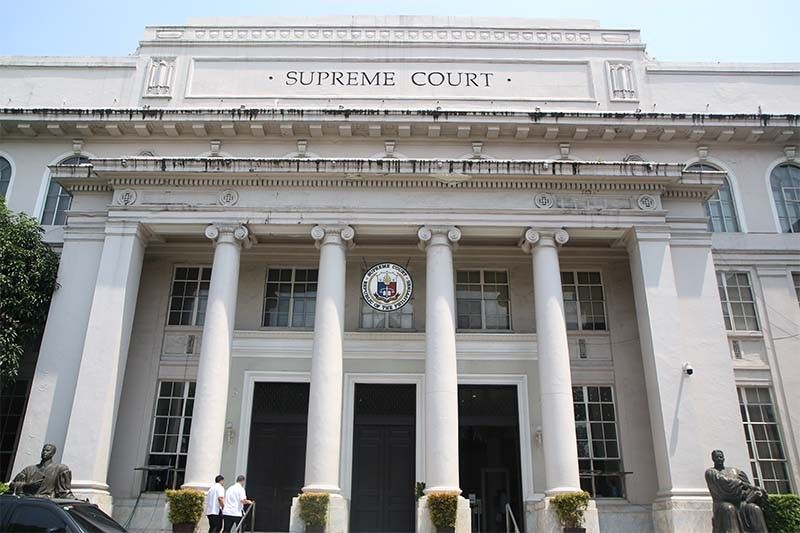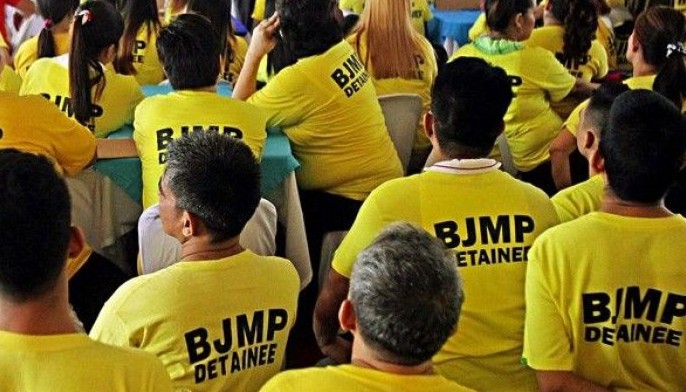SC: Prosecution may follow DOJ's stricter guidelines in plea bargains in drug cases

MANILA, Philippines — Prosecution may refer to and use a Department of Justice circular with stricter guidelines on accepting or rejecting plea bargains in drug-related cases, the Supreme Court said.
In ruling on a Petition for Certiorari filed by Inol Sayre on the drug cases filed against him, the SC voted 14-1 and said the trial court was correct in allowing the proceedings to continue after the accused and the prosecution failed to reach an agreement to plea bargain.
Under the plea bargaining framework, an accused may be allowed to plead guilty to a lesser offense. This procedure is seen to help in decongestion court dockets and detention facilities in the country.
Sayre elevated his case to the tribunal after Panabo City, Davao del Norte Regional Trial Court Judge Dax Gonzaga Xenos denied his plea bargain.
Sayre’s drug case and plea bargain
Sayre is facing charges for violation of Sections 5, 11 and 12 of Republic Act 9165 or the Comprehensive Dangerous Drugs Act of 2002. Section 5 is specifically drug trading, while Sec. 11 is possession of illegal drug and 12 is possession of equipment, instrument, apparatus for dangerous drugs.
According to the Information or charge sheet filed before the court, Sayre was arrested for selling 0.1029 grams of shabu.
He wanted to enter into plea bargain agreement for his charges on trading and possession of illegal drugs under Section 12, which carries a penalty of six months imprisonment and one day to four years. Section 12 also imposes a six-month compulsory rehabilitation.
The agreement was under the Office of the Court Administrator circular that the SC adopted on April 10, 2018.
The prosecution however filed a counter-proposal, citing a Department of Justice circular dated June 26, 2018. City Prosecutor Jennifer Namoc-Yasol recommended that for drug trading, Sayre should plead guilty to Section 11, paragraph 3 or illegal possession of drugs. The charge carries the indeterminate penalty of 12 years and one day to 14 years and 8 months, and a fine of P300,000.
Meanwhile, for the charge of illegal possession of drugs, the prosecution recommended that Sayre plead guilty to the offense under Section 12, that sets the indeterminate penalty of six months to four years and a fine of P25,000.
“The City Prosecutor argued that they are bound by DOJ Circular No. 27... insisting that ‘any plea bargaining outside the DOJ circular is not acceptable,” the ruling read.
Sayre went up to the SC and asked it to declare DOJ Circular No. 27 as unconstitutional. He argued that the “DOJ provision on plea bargaining.... is unconstitutional as it is repealed, altered or modified the more favorable plea bargaining provision under OCA Circular 90-2018.”
SC’s ruling
The SC dismissed Sayre’s Petition for Certiorari as it ordered the trial court to proceed with the criminal case.
The high court said that while the OCA circular was issued under the rule-making power of the SC, a plea bargain “still requires mutual agreement of the parties and remains subject to the approval of the court.”
“The acceptance of an offer to plead guilty to a lesser offense is not demandable by the accused as a matter of addressed entirely to the sound discretion of the trial court,” the SC said in a ruling penned by Associate Justice Rosmarie Carandang.
The SC also noted that according to the Rules of Court, with the consent of the offended party and prosecutor, the accused may be allowed to plead guilty to a lesser offense. It stressed that the word “may” signifies that the court has discretion on allowing the accused to plead to guilty a lesser offense.
In Sayre’s case, the tribunal took the prosecution’s refusal to allow him to plead to a lesser offense as a matter up to the trial court to resolve. “This harmonizes the constitutional provision on the rule making power of the Court under the Constitution and the nature of plea bargaining in Dangerous Drugs cases,” the ruling read.
The SC also said that the DOJ circular on plea bargain is an internal guideline for prosecutors that did not violate the SC’s rule-making authority.
Caguioa’s dissenting opinion
Carandang’s ruling has the concurrence of 13 other SC justices. Associate Justices Marvic Leonen, Amy Lazaro-Javier and Rodil Zalameda wrote their respective concurring opinions on the petition.
Associate Justice Alfredo Benjamin Caguioa was the lone dissenter in the ruling.
Caguioa, in his five-page dissenting opinion, said that he believes that the DOJ circular is unconstitutional as it “encroaches upon the exclusive power of the Court to promulgate rules.”
He pointed out that the Court held in Estipona Jr vs Lobrigo that plea bargaining is under the SC’s exclusive domain. “Thus, an executive issuance which runs counter to the rule-making power of the [SC] over rules on pleading...including the adoption of the framework governing plea bargaining in the [RTC] is unconstitutional.”
Caguioa also noted that the two circulars, one from the Judiciary and the other from the Executive branch, are irreconcilable.
“[T]he ponencia as it stands is not harmonization or reconciliation, but a complete surrender of powers,” he added.
- Latest
- Trending
































